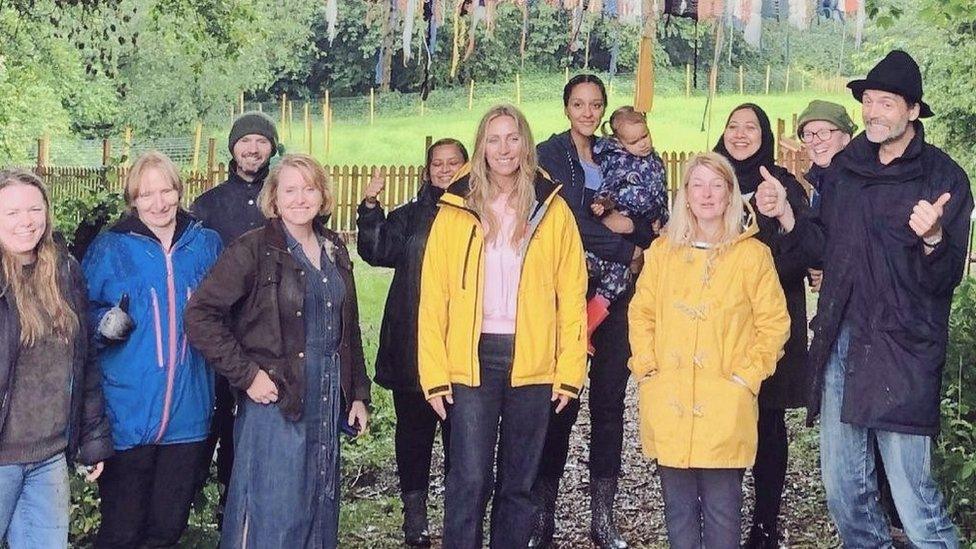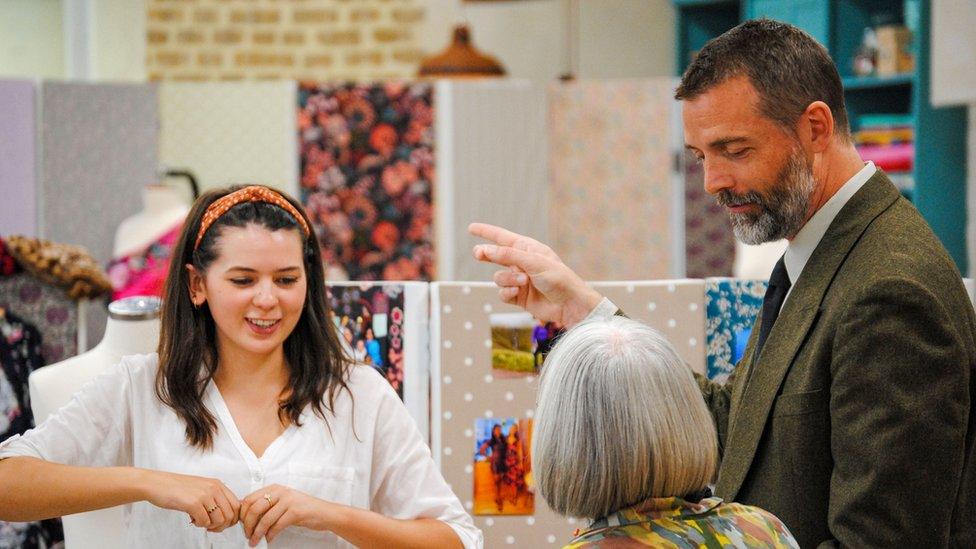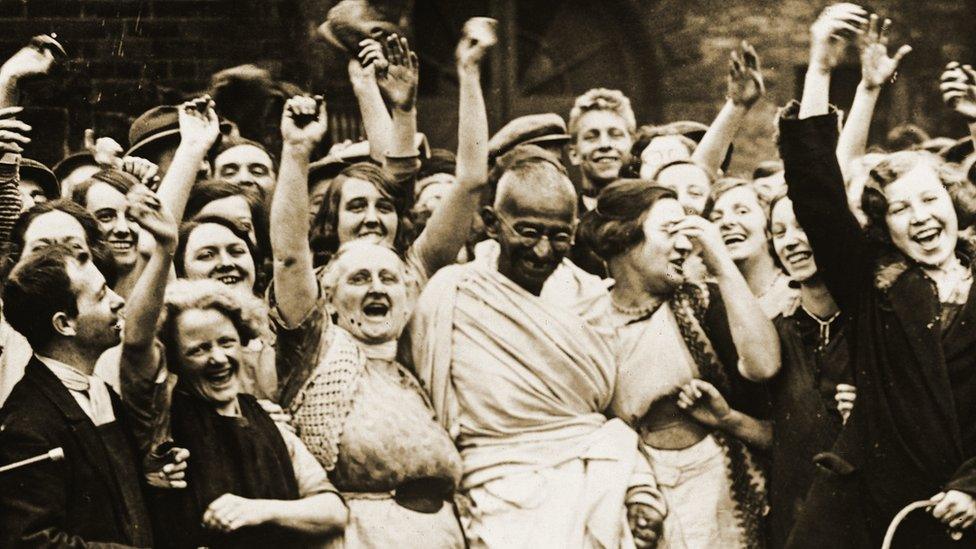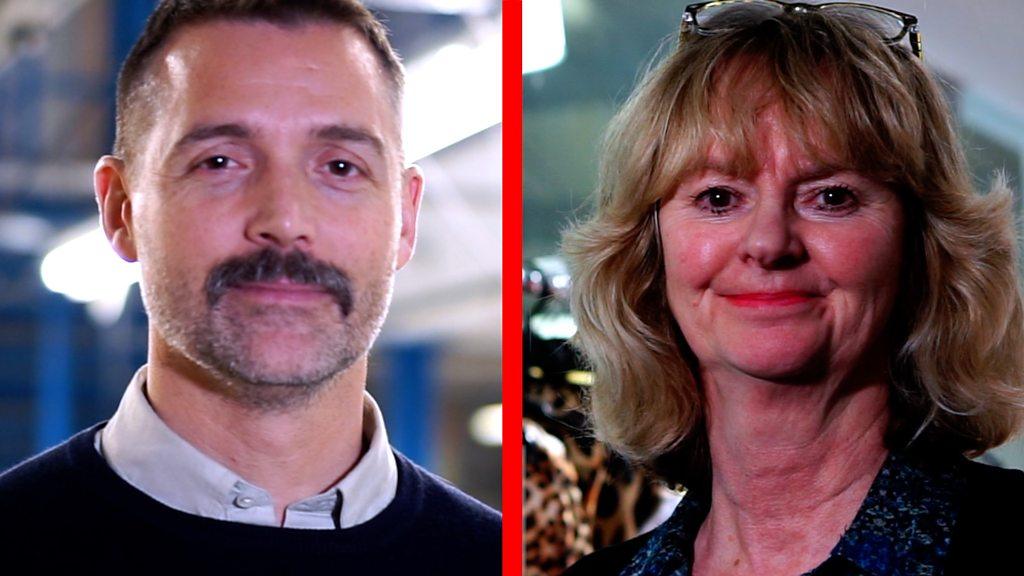Sewing Bee judge Patrick Grant to showcase homespun jeans
- Published

Patrick Grant (right) is working with designers and volunteers in Blackburn to make local clothing
The clothing designer Patrick Grant says he aims to showcase homegrown clothes in Blackburn "for the first time in a couple of centuries".
The Lancashire town was a major manufacturing area since the 18th Century however the industry declined in the 20th Century, external.
The jeans will be made from flax and woad planted on unused ground along the Leeds and Liverpool Canal.
They will be displayed at October's British Textile Biennial in Blackburn.
Members of the local community will cultivate the crops during the summer before they are harvested and processed in the autumn.
They will then be spun, dyed and woven in Blackburn to create the first pair of commercial homespun jeans in Mr Grant's Community Clothing collection.

Mr Grant is a judge on the BBC series The Great British Sewing Bee
The designer, who is a judge on BBC series The Great British Sewing Bee, said: "We hope that there's an economically sustainable business here that will produce and create long-term jobs in the region."
It has been claimed that textile production contributes more to climate change than aviation and shipping combined.
One shirt and a pair of jeans can take up to 20,000 litres of water to produce, according to a 2019 government report.
Environmental campaigners have been urging people to buy fewer items and more eco-friendly natural fibres.
Textile artist Justine Aldersey-Williams, who is overseeing the Blackburn project, said: "What we're trying to do is teach people about where clothes come from - they can come from renewable plants or from non-renewable fossil fuel.
"It's the idea of bringing textile crops back to Britain and that process - it builds this respect and reverence for nature."

Mahatma Gandhi visited Lancashire in 1931
Laurie Peake, director of The Super Slow Way arts programme, said October's biennial would also mark the 90th anniversary of the Indian independence campaigner Mahatma Gandhi's visit to Lancashire in 1931, when he was finding out about the working conditions of mill towns.
"Gandhi's swadeshi philosophy of homespun self-sufficiency is more relevant than ever here, where there was a thriving cottage industry based on handloom weaving prior to the industrial revolution," she added.

Why not follow BBC North West on Facebook, external, Twitter, external and Instagram, external? You can also send story ideas to northwest.newsonline@bbc.co.uk
Related topics
- Published27 January 2020

- Published9 August 2021

- Published7 August 2019

- Published18 June 2019
